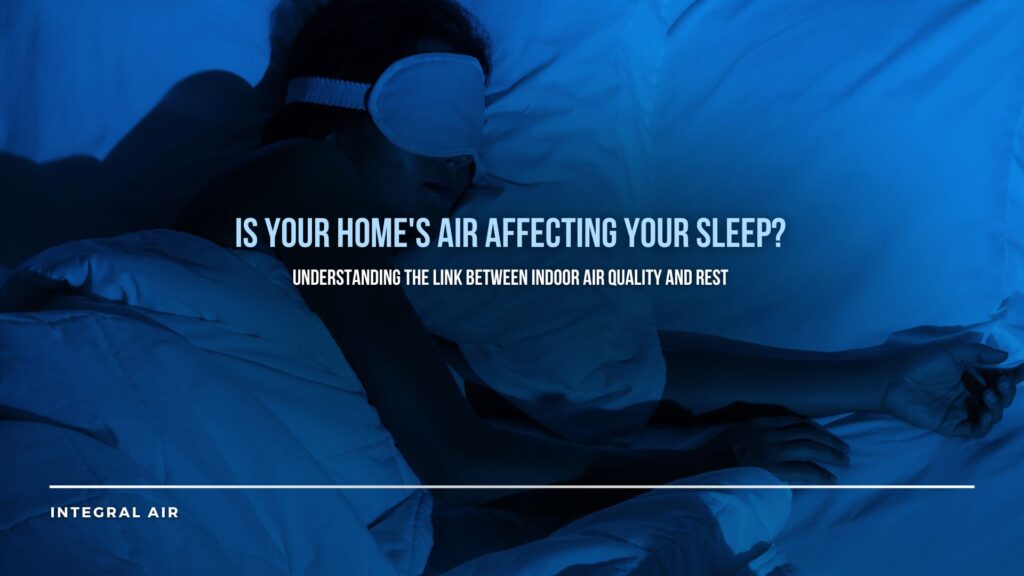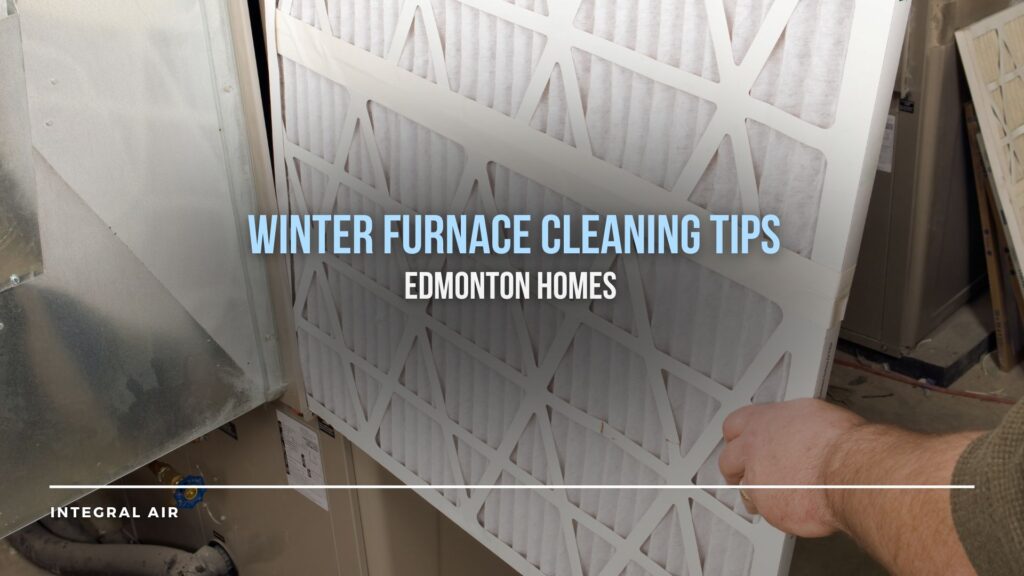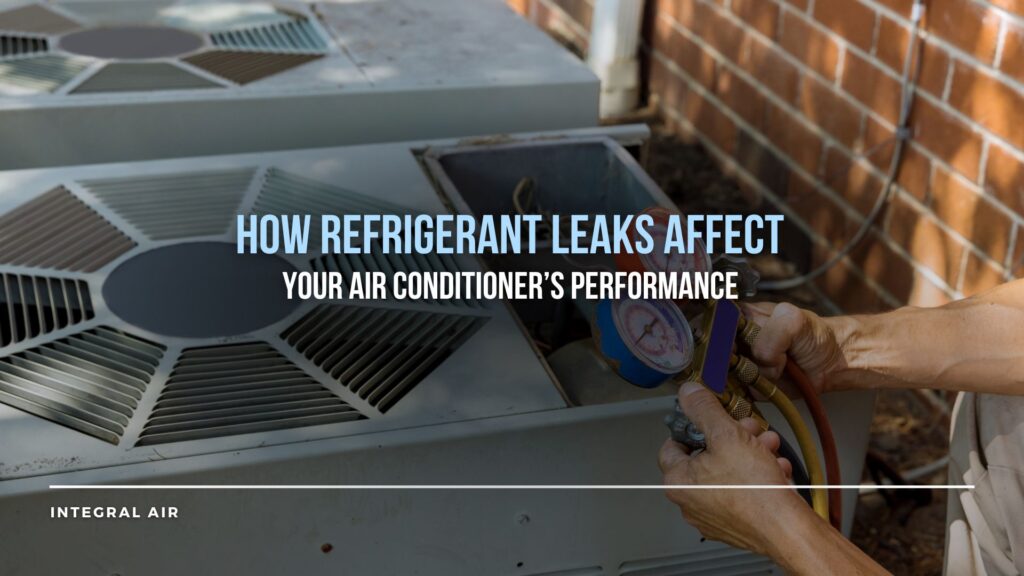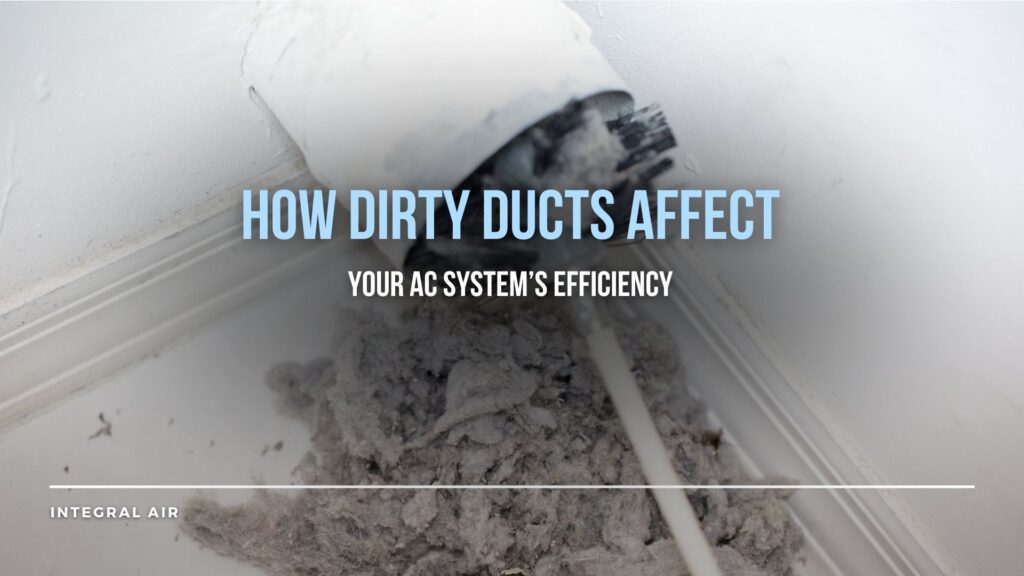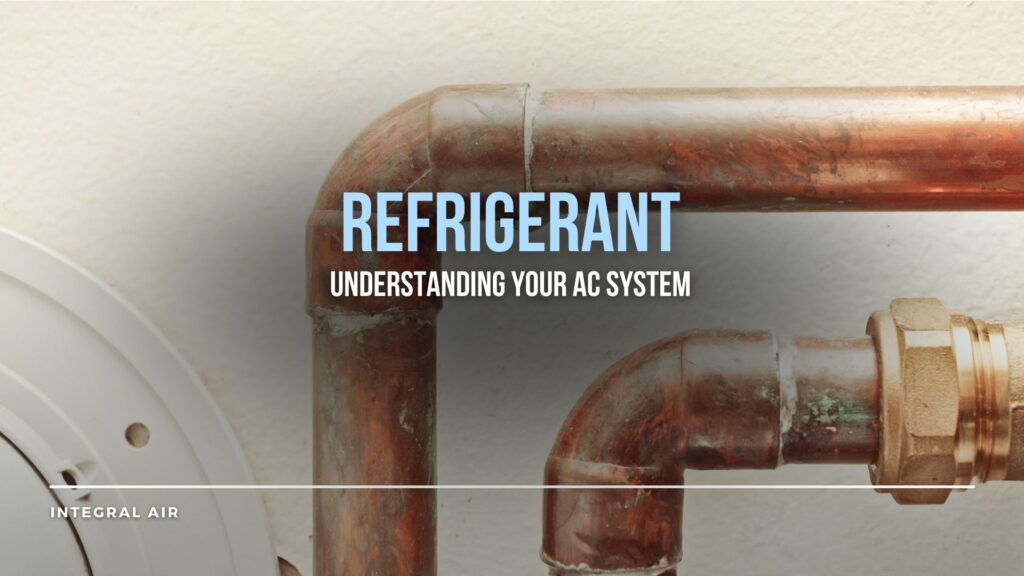Getting a good night’s sleep is essential for your physical and mental health. But while many people focus on bedtime routines and limiting screen time, one factor often goes unnoticed: indoor air quality. Poor air quality can lead to disrupted sleep, affect your breathing, and leave you feeling tired even after a full night in bed. If you want better sleep, improving your bedroom air purity might be the key.
In this blog, we’ll explore the science behind how air quality affects sleep, ways to improve your sleeping environment, and how your HVAC system plays an important role in creating a healthy sleep environment.
Why Indoor Air Quality Matters for Sleep
Indoor air pollutants like dust, mould spores, and volatile organic compounds (VOCs) can interfere with your sleep. These pollutants may come from cleaning products, furniture, pet dander, or outdoor air that enters your home.
When these pollutants are present in high levels, they can cause allergy-like symptoms, including sneezing, coughing, watery eyes, and a dry throat. All of these can lead to disrupted sleep and make it harder to stay asleep through the night. Poor bedroom air purity can also affect your circadian rhythm, the internal clock that tells your body when to feel sleepy and when to wake up.
Studies have shown that people who sleep in rooms with high levels of air pollution or particulate matter often report poorer sleep quality and more time spent awake during the night.
How HVAC Systems Affect Bedroom Air Quality
Your HVAC system is one of the main tools for controlling indoor air quality. HVAC filters catch many of the particles and pollutants that move through your home’s air, including dust, pollen, and pet dander. But if your system isn’t properly maintained, it could be making things worse.
Dirty filters, blocked vents, or outdated equipment can spread pollutants instead of trapping them. This is especially problematic in the bedroom, where clean air is essential for healthy sleep.
If you want a healthy sleep environment, your HVAC system should be clean, well-maintained, and fitted with high-quality filters designed to capture fine particles.
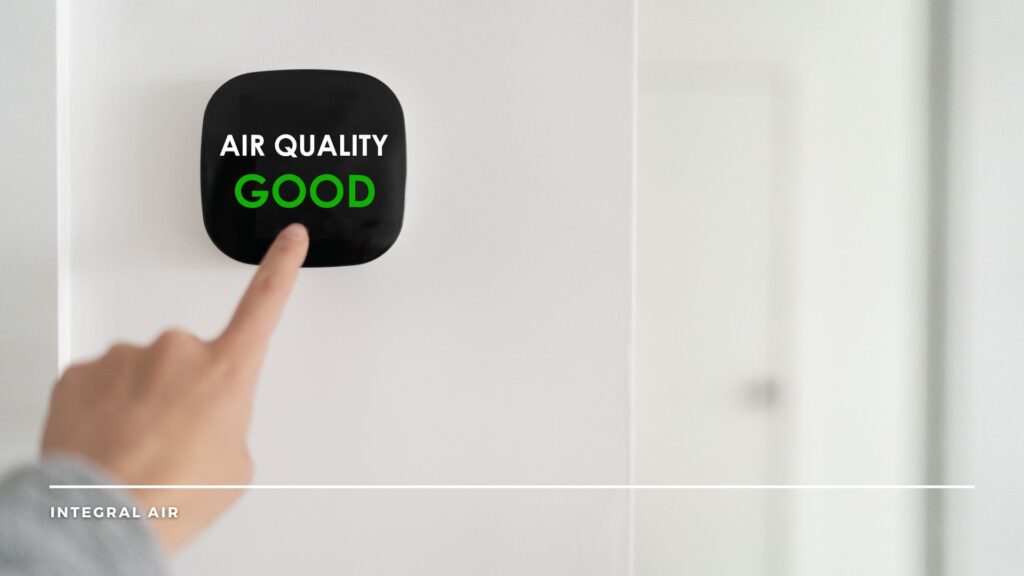
Tips for Improving Indoor Air Quality for Sleep
There are several practical ways to improve air quality in your bedroom and support sleep improvement.
1. Change Your HVAC Filters Regularly
HVAC filters should be checked monthly and changed every 1 to 3 months, depending on your home, pets, and location. Clean filters help keep indoor air pollutants from entering your bedroom.
2.Ventilate Your Bedroom
Whenever possible, open a window for 20 minutes during the day to let outdoor air in and help clear out stale indoor air. Just make sure the outdoor air is clean when you do this.
3.Reduce VOCs in the Room
Avoid using strong-smelling products or paints close to bedtime. VOCs from aerosols, furniture, or air fresheners can build up and harm your indoor air quality.
4.Use an Air Purifier
An air purifier with a HEPA filter can remove dust, allergens, and particulate matter, keeping the air filtered and fresh.
5. Limit Electronic Devices
Electronics like tablets, phones, and TVs release small amounts of heat and can interfere with your sleep habits. Reducing screen time before bed and keeping devices out of the bedroom can help improve your circadian rhythm and overall sleep environment.
6. Add Plants That Clean the Air
Some houseplants, like snake plants or peace lilies, can naturally filter air and remove certain pollutants. These can be a great addition to your bedroom, but be sure not to overwater them as mould can form in soil.
7. Keep Your Bedroom Clean
Dust and vacuum regularly, especially around air vents and under the bed. This helps reduce indoor air pollutants and creates a more comfortable sleeping space.
Creating a Healthy Sleep Environment
Beyond clean air, there are other ways to build a healthy sleep environment that supports deep rest.
- Keep the room cool: A temperature between 16°C and 19°C is best for most people.
- Block out light: Use blackout curtains or an eye mask to support natural melatonin production.
- Create white noise: A white noise machine or fan can block out sudden sounds that might wake you up.
- Stick to a routine: Try to go to bed and wake up at the same time every day, even on weekends.
- Wind down 30 minutes before bed: Read, take a bath, or do light stretching to relax your body and mind.
Together with good air quality, these habits can make a big difference in how well you sleep.
The Long-Term Benefits of Cleaner Air at Night
Improving your bedroom air purity isn’t just about one night of good sleep. Over the long term, better air quality can support your immune system, reduce your chances of developing respiratory problems, and boost your mental focus during the day. People who get healthy sleep are more alert, manage stress better, and are at lower risk for chronic conditions like heart disease.
It’s a simple but powerful change: improve indoor air quality, and you could see better nights and better days.
FAQ: Air Quality and Sleep
How do I know if poor air quality is affecting my sleep?
If you often wake up feeling groggy, have a dry throat, or notice allergy symptoms at night, your air quality might be to blame.
Are air purifiers really worth it for sleep?
Yes. A good air purifier can significantly reduce pollutants like dust and pollen, helping you sleep more comfortably.
How often should I clean my HVAC system?
It’s a good idea to have your HVAC system checked once a year and change filters every 1 to 3 months, depending on use.
Can indoor plants actually improve air quality?
Some plants can remove small amounts of VOCs, but they work best when combined with other methods like ventilation and filtration.
Is it better to keep windows open or closed at night?
It depends on outdoor air conditions. If the outdoor air is clean, opening a window for 20 to 30 minutes before bed can help ventilate the room.
Indoor Air Quality is Crucial
Sleep is one of the most important parts of our daily lives, and indoor air quality plays a bigger role than many people realize. From reducing allergens to supporting your natural sleep cycle, clean air creates the foundation for a healthy sleep environment.
By using quality HVAC filters, maintaining your system, and following smart sleep habits, you can create a bedroom that helps you fall asleep faster, stay asleep longer, and wake up feeling truly rested.


